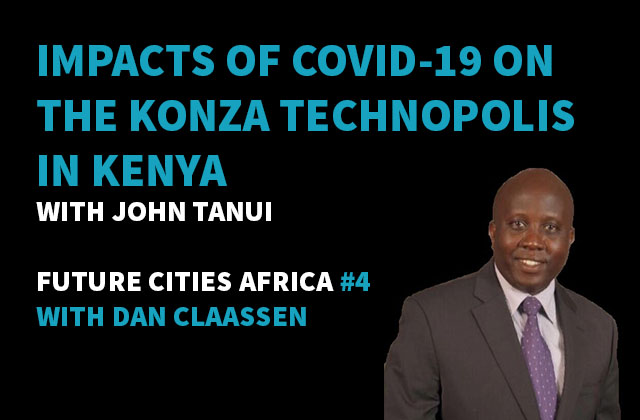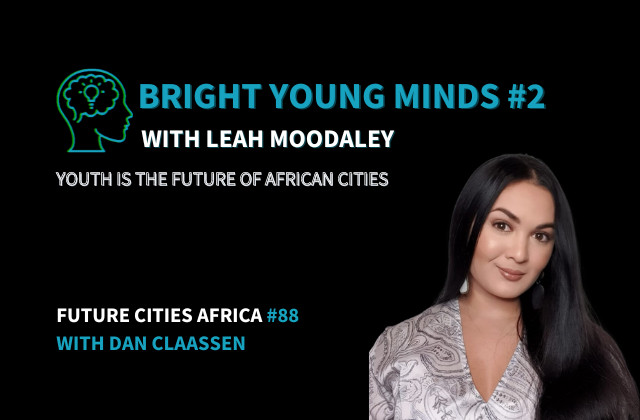Listen to Audio
Energy and Sustainability Strategy at the City of Cape Town
Kadri Nassiep is Executive Director for Energy at City of Cape Town. We explore the City’s energy and sustainability strategy for growth and recovery, major challenges, energy independence, success stories, future technologies, opportunities for collaboration with private sector, and what the future can look like.
Stay Connected
Discussion highlights
This episode is presented in partnership with the City of Cape Town
Major sector challenges and how the City is managing it
- Impacts of the drought and load-shedding.
- Pandemic impacts not yet fully realised.
- Distribution network has become vulnerable.
- Critical resources in short supply.
- How do we emerge from challenges with an eye of resilience and climate change mitigation.
- Multiple shocks are creating new ways of doing things.
- City of Cape Town sees itself as a leader, innovator, pioneer with best interest of its community at heart.
- Energy security of supply top priority.
- What is the true cost of load shedding: They have estimates saying R50m per day per stage for Western Cap
- Pressure is on the City to diversify, divest itself as much as possible from dependance on Eskom, and look to the future energy market and see how it can be a partner.
Challenges for the City to be more energy independent
- Kadri explains the challenges of the implementation of a procurement programme that opens up the market to the private sector, and the disjuncture that exists between them and national government on ow this should be done.
- Kadri shares information on the Building up of an Integrated Resource Plan at city level. (City-Level IRP), work to be done by the TheCouncil for Scientific and Industrial Research (CSIR).
Success stories from the sector
- Proceed with RFP for project under 10MW (e.g. Solar, Waste, Gas).
- City is investigating and in advanced stage of developing its own Solar Plant (Approx. under 10MW located in Atlantis).
- Electric vehicles with an eye on public transport.
- Investigating use of hydrogen.
- Support from UNIDO, etc. for solar charged electric vehicle charging stations in Bellville and Somerset West.
Strategy for growth and recovery
- Reduce dependancy on Eskom.
- Fight energy poverty. Offer alternatives that are more affordable, reliable and safe. Enable communities to grow.
- Implementing and monitoring programmes that support resilience.
- Kadri talks about the City of Cape Town Climate Change strategy.
- On supply side replace a lot of purchases from Eskom with their own, embedded generation from private sector or Independent Power Producers (IPPs) delivering power from anywhere in the country.
- Ultimately: Power exchange based on dynamic market structure. Kadri explains how it can work and the benefits.
- More electric vehicles as the technology becomes more prevalent. Discharge power back into grid during peak periods.
- Hydrogen can be a critical game changer for the City and Province. Athlone Power Station used as example. Could potentially be used for trains and busses.
- Partnerships are critical.
Major barriers to the implementation of the strategy
- Approval from national government will take time, Kadri explains the process and what is required.
- Securitisation of loans around own generation.
- Looking at 3 to 4 years before you see any technology being commissioned on the grid.
- Upgrading the network.
- Proper metering.
Opportunities for collaboration with private sector
- ‘Let's Act for a Stronger Cape Town’
- Financing opportunities for private sector.
- Kadri talks about opportunities in Mobility.
- Small-scale embedded generation programme, Kadri expands on it.
- Interested in supporting, piloting and demonstration of technology with private sector.
- Introducing telemetry into street lighting.
- Started construction of floating PV demonstration facility.
Kadri’s vision of the energy and sustainability sector in 50 years
- Hydrogen as key energy type.
- Distributed generation and resources play a significant role.
- Centralised utilities will die out.
- Solar market will keep growing.
- Energy Storage market will grow significantly.
- Nuclear will remain an option.
- Fusion technology will have m
- Divested from coal.
The City’s role in a decentralised future
- The city will be an enabler.
- Kadri explains how the City can stay relevant and create a diverse range of options and make that available to business and the public.







